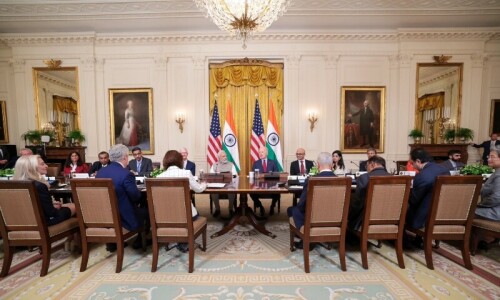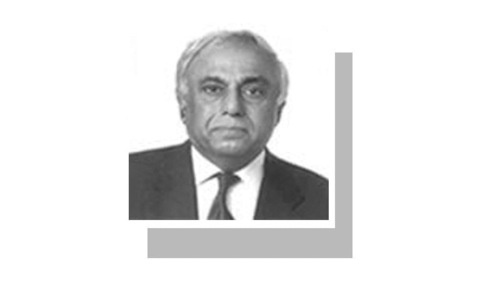Chancellor Olaf Scholz leads a high-level delegation to New Delhi this week, betting that greater access to the vast Indian market can reduce Germany’s reliance on Beijing even if India does not turn out to be the “new China”.
From cars to logistics, German companies are largely optimistic about India’s growth potential, tapping into a wealth of skilled young workers, a cheaper cost base and economic growth motoring at around 7 per cent.
The visit comes at a delicate time for Germany, whose export-oriented economy faces a second year of contraction and worries over a trade dispute between the European Union and China that could rebound on German companies.
Stung by its problematic reliance on cheap Russian gas before the Ukraine war in 2022, Germany has pursued a strategy of reducing its exposure to Beijing.
“India, the most populous country in the world, is a key partner of the German economy in the Indo-Pacific and plays a key role in the diversification of the German economy,” Economy Minister Robert Habeck said on Wednesday.
“We must reduce critical dependencies and strengthen the resilience of German companies and their supply chains to and from Asia.” But China is still the biggest show in town.
German direct investments in India were around 25 billion euros ($27 billion) in 2022, about 20pc of the volume invested in China, said Volker Treier, head of foreign trade at the German Chamber of Commerce DIHK. He thinks that share could rise to 40pc by the end of the decade.
“China will not disappear, but India will become more important for German companies,’ said Treier.
“India is the litmus test, so to speak. If de-risking China is to work, India is the key to it, because of the size of the market and the economic dynamism in the country.” Scholz, who will take with him most of his cabinet including the foreign and defence ministers, will meet Indian Prime Minister Narendra Modi on Friday before presiding over the seventh round of Indian-German government consultations.
Habeck will arrive a day earlier to open the biennial Asia-Pacific Conference of German Business.
CHINA + 1
German firms cite bureaucracy, corruption and India’s tax system as investment hurdles, according to a study by consultancy KPMG and the German Chambers of Commerce Abroad (AHK).
They nonetheless see a bright future in India, with 82pc expecting their revenues to grow in the next five years. Some 59pc are planning to expand their investments, compared to just 36pc in 2021.
For example, German logistics giant DHL plans to invest half a billion euros in India by 2026, tapping into a fast-growing e-commerce market.
“We see enormous growth potential in the Asia-Pacific region, of which India has a significant share,” said division head Oscar de Bok.
Volkswagen, which has been hit by falling sales in China and high production costs at home, is considering new tie-ups in India for joint production. It has two factories already and signed a supply deal with local partner Mahindra in February.
“I think we shouldn’t underestimate the potential in India in terms of a market … and in terms of regulatory uncertainty between the US and China,” said the group’s finance chief Arno Antlitz in May.
Similarly, Cologne-based engine maker Deutz announced a deal this year with India’s TAFE, the world’s third-largest tractor maker, for subsidiary TAFE Motors to produce 30,000 Deutz engines under licence.
“The main arguments for India are political stability and low labour costs,” said Jonathan Brown, a managing director at BCG. “So you should have a ‘China + 1’ strategy in which India plays an important role.” Trade hit a new record in 2023 between Germany and India, which is expected to overtake Germany and Japan to become the world’s third-largest economy by the end of the decade.
Negotiations for an EU-India free trade deal, years in the making, still have no end in sight.
“The hurdles to gaining a foothold in the market are high,” said BCG’s Brown. “But once you’re there, you have great potential. What doesn’t work is just selling German products locally.”


















































Dear visitor, the comments section is undergoing an overhaul and will return soon.